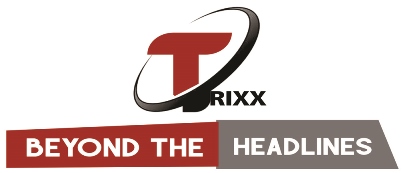News
CSOs raises alarm over plot by foreign media to demonise Nigerian Army
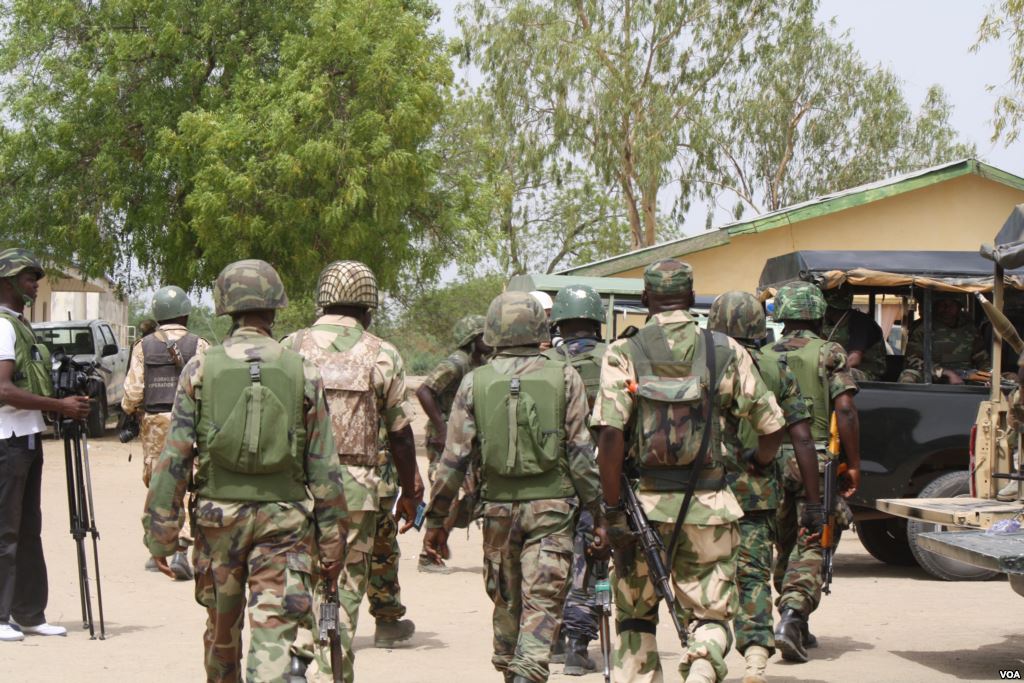
Coalition of Civil Society organizations, Civil rights advocacy group, Human Rights Writers Association of Nigeria (HURIWA) have raised alarm over an alleged plot by some foreign media to rubbish the image of the Nigerian Army in its fight against terrorists in the North-East of the country.
HURIWA National Coordinator, Emmanuel Onwubiko, at a press briefing on Friday in Abuja, said coalition of civil society organisations drawn from various parts of the country is fully aware of the alleged plans by some western media to demonise the Nigerian Army by churning out fake reports that may dampened efforts to root out Boko Haram and other terrorists from Nigeria.
His words : “We want to first and foremost let you know that this briefing session is completely our independent initiative in our capacity as a coalition of Nigerian civil society organizations who have no political affiliations but are passionate about achieving just and equitable development in our dear country.
As you all may be aware, our coalition is a team of professionals who have come together to advance the single agenda of building a formidable and economically strong united Nigeria.
THE ISSUES
As you all are aware, Boko Haram and ISIS-West Africa attacks against government and security forces and civilians in Northeast, Nigeria have resulted in deaths, injuries, abductions, and the capture and destruction of property.
Worrisome is that the Boko Haram attacks did not discriminate between civilians and government officials, whereas ISIS-WA generally, but not always, focused attacks on government and security forces.
The implementation of the Nigerian military’s “super camp” strategy, which began in 2019, was designed to stem losses when terrorists overran forward-operating bases. As a defensive military strategy, the decision to consolidate the posture into super camps is working.
Sadly, some foreign media elements, fanning the embers of hatred against the Nigerian Army are peddling false or exaggerated accusations supposedly to weaken the Nigerian Army and help arms supplies to sell more weapons to terrorists.
Gentlemen of the Press, we have privileged information that Reuters; a foreign media platform is planning a sinister story on the Nigerian war on terror.
They want to raise allegations of secret abortion clinics in North East whereby over 200 kids born through the rape of captured women by Boko haram commanders were aborted without the permission of the Women who were raped.
Also, they are accusing the military of decimating children of Boko haram fighters and are saying they will file a petition to the ICC.
They accuse the Nigerian Army of running these abortion clinics and mass burials of kids killed deliberately by the Army but gave no concrete evidence of where those mass graves are located
OUR CONCERNS
We, the Coalition of Civil Society organizations are very concerned about Reuters as a foreign media plotting to circulate the story which will undermine Nigeria’s national security.
Gentlemen recall that during the missile incident that killed two people in Polish territory on Tuesday, November 15th, 2022, Reuter quickly sent out an unverified story accusing Russia of being responsible. However, it turned out that they were missiles fired by Ukraine to stop Russian bombs.
The report nearly made NATO begin a World War against Russia, as the incident in Poland; a NATO country prompted ambassadors from the US-led military alliance to hold an emergency meeting in Brussels.
Reuters reportedly later fired the reporter when NATO scientists confirmed it was a Ukrainian bomb, not a Russian. This is worrisome as the trend to publish stories without thinking of their impact is still what the media outfit is planning to do.
Many foreign media have shifted to a point where they want to publish stories that sell, looking at how much they will get out of the story without minding more about who is affected or who is not affected. That is why you find many of them sensationalize issues instead of reporting for the good.
Also, permit me to draw a comparison on the troubling equation, implicating news media – both within Rwanda and internationally – in the genocide. In looking back on this period, it is important to examine the role of domestic hate media and international media.
As uncomfortable as this connection may seem, we cannot separate the two. We are looking at the role of the media, the power of its message, and the impact of an information vacuum.
There is a considerable and growing body of literature on the Rwanda genocide in general and the role of the media in particular.
The use of propaganda leaflets and radio messages was a key tool in procuring the compliance of Hutus to participate in the massacres, including those initially against the killings.
Propaganda alluded to the rewards participants would receive for killing Tutsis. These messages reinforced impunity and provided the killers with the legitimacy to kill Tutsis and the moderate Hutus who often tried to protect them.
Those Hutus who fled Rwanda after the genocide were often pushed into doing so by fear-filled propaganda, which was arguably aimed at increasing the number of refugees, who would then be seen as victims by the international community.
Strikingly, whilst Burundi’s Hutu President was also killed, the Burundi media worked with the UN and domestic officials to broadcast a message of calm, averting atrocities on this occasion. This emphasizes propaganda’s influence in spurring the Rwandan genocide.
effects of the propaganda also transcended from the national to the international sphere, as Hutu propaganda arguably misled the international community’s perceptions of the genocide.
Propaganda alluded to atrocities committed by the Rwandan Patriotic Front (RPF) which in turn contributed to notions that atrocities were the result of renewed warfare, ethnic tensions, or simply ‘chaos’.
Indeed, French media portrayed the events as a “two-way genocide” and French troops were led to believe Hutus were victims of the conflict, just as Reuters is trying to portray the terrorists as victims rather than villains.
The purpose of looking back at the media’s role in the Rwanda events is not just to remember. Foreign media still have some learning to do on this subject.
Examining the way journalists and news organizations conducted themselves in 1994 is not just a historical exercise.
Sadly, the international community does not yet seem to have fully discerned or absorbed the lessons from Rwanda.
OUR POSITION
The Nigerian Army deserves the gratitude and commendation of the nation and the international society, not this sinister plot by Reuters to distract and weaken efforts in the fight against terrorism.
Again, the sponsors of this campaign of falsehood and calumny must not be allowed to achieve their evil plans. If we sit back and fold our arms whilst this evil is allowed to fester, then we will be shooting ourselves in the foot destroying the achievements the Nigerian Army has made so far against terrorism.
Gentlemen of the media, we are by this statement calling on the Nigerian Government to warn against foreign media stoking embers of hatred against the Nigerian Army. Reuters is on the vanguard of destroying the credibility of the Nigerian Army with unsubstantiated propaganda, which is enough to undermine our national security.
The Media were used in Rwanda to spread hatred, dehumanize people, and even guide the genocidaires toward their victims. The tension between the two groups existed for decades, but what was a protracted social conflict morphed quickly into a genocide with significant assistance from the media.
Three journalists have even been found guilty of genocide, incitement to genocide, conspiracy, and crimes against humanity by the International Criminal Tribunal for Rwanda.
We must find a way to respond to such abuses of power without violating the principles of freedom, which are an indispensable cornerstone of democracy.
Propaganda plays an active, supportive role in facilitating the atrocities, as well as an influential role in establishing the pre-conditions for mass killings.
The lessons for international society are twofold. Whilst a free press is a sine qua none to hold those in power accountable and represents the very foundation free societies rest upon, it needs to be emphasized that freedom comes with responsibility.
The abuse of the freedom of speech to create division through hate speech, and unsubstantiated accusations that in turn lead to large-scale violence is an indicator of an arising conflict.
The sponsors of this campaign of calumny against the Nigerian Army need to be identified and acted upon. We, therefore, call on international society to increased pressure in halting such propaganda.
Successive Chiefs of Army Staff and especially Lieutenant General Tukur Yusuf Buratai during his 5 year stint, did a lot to mainstream promotion and protection of human rights in the daily operations of the Army.
Beyond this, upon assumption of office, Buratai and his Principal Officers monitored issues on allegation of human rights abuses against troops deployed for operations across the country in line with the President and Commander-in-Chief of the armed forces’ mandate in the fight against terrorism. Again, through the establishment of Human Rights Desk Offices in the Army headquarters and across the Nigerian army divisions, the Army could address petitions and other different claims against it. This move, borne out of the increasing interest of the local and international human rights bodies on what Nigerian Army is doing in the North-East and and other parts of the country, to many human right analysts, marked a departure from the old order when the Military was on the defensive whenever allegations of human rights violations were leveled against it.
Incidentally, while commissioning the human rights office at the Headquarters of 7 Division Nigerian Army in Maiduguri, Buratai noted that the establishment of the desk office was borne out of the increasing interest of local and international rights bodies on what the army is doing in the North-East and other parts of Nigeria. His words: “The Nigerian Army is trying to open up the system and close the gap with the civil populace, human rights bodies and Civil Society Organizations; the nature of inquiries, commentaries, and claims from these institutions requires a professional and specialized response by the Nigerian Army. What we are witnessing today has been facilitated by the Nigerian Bar Association and National
National Human Rights Commission”, he added.
The Military–Media–Public Awareness Programme noted at an event, with CLEEN foundation at Jabi Motor Park, Abuja, that “the army is passionate about the rights of civilians and had measures in place to ensure that rights of civilians are protected. These measures included the opening of Free Toll Line 193, designated Toll-Free Call Centre and Public Complaints Rapid Response Unit. The offices and the toll line 193 are opened to members of the public whose rights have been infringed upon; they can always walk in to the office and lodge their complaints. So, the Army is doing its best to ensure that they respect the rights of the civilians. We assure them that once they come to us they protected their rights and we do our best to serve them better”.
There were many more efforts under Buratai to protect human rights, especially on the abuse of detainees because of the poor state of the detention facility in Giwa Barracks Maiduguri, in the areas of poor sanitary condition/ventilation, overcrowding and irregular water supply. He remarkably commissioned 400 capacity Joint Investigation Centre and Detention Cells for Boko Haram suspects in Maiduguri, in 2018, and the facilities were built with heat and odor extractor, coupled with constructed borehole to enable detainee’s access to water. He had then argued that “this modern facility will go a long way in changing the narrative in the criticism of the Nigerian military. It is a clear sign we welcome positive criticisms to see where we can improve on it, and this is what we have showed here.
Buratai’s leadership approved the commencement of the construction of additional holding facility to improve the management of detainees during investigations. At the foundation laying ceremony, he stated that the ongoing counterterrorism and counter-insurgency operations in the North East, has made it mandatory for arrest and detention of suspected insurgents who must be properly taken care of under international best practices while in custody. He stressed “the quest for a functional transit safe holding and detention facility, with adequate sanitary conditions for the effective management of suspected Boko Haram Terrorists for further investigation activities, is the driving force behind the execution of this project by the COAS” The soldier then added: “It shows the compliance of the NA with global best practices. This will further strengthen the cooperation between the army and stakeholders, especially in the management of suspects undergoing investigation”.
There was also the establishment of a Special Board of Inquiry by the COAS to probe alleged cases of human rights violations leveled against the Nigerian Army personnel, especially in the ongoing counter terrorism. According to him, despite the success recorded by troops in the ongoing counter-terrorism operations in the North East, some individuals and organisations had expressed concerns, alleging misconduct and human rights abuses by personnel of the army, “especially in the early days of the counterterrorism and counter-insurgency operations. The board was, therefore, set up to investigate the matter and establish the true situation of the allegations.
The then Chief of Army Staff said that the board was set up in line with the provision of Section 172(1) of the Armed Forces Act CAP A20 Laws of the Federation of Nigeria, 2004. Buratai, however, called on the board not to probe or revisit cases of abuse that had been investigated by state governments or the National Human Rights Commission. He also urged members of the board to justify the confidence reposed in them as they were selected based on competence and merit to serve. He added: “I implore you to leave no stone unturned to come up with a report that will explain the facts to all and assist the Nigerian army in taking appropriate actions”
In addition, there were regular, timely and effective enforcement of extant rules/application of sanctions to human rights violators as a way of the Nigerian Army in curtailing human rights abuses by its personnel. Under Buratai, any confirmed case of rights infraction was met with maximum punishment. This way, human rights abuses were also drastically curtailed in the Nigerian Army. All these where deliberate efforts by the Nigerian Army under the leadership of Buratai to eliminate rights abuses by its personnel.
More so, while Buratai held sway, the Nigerian Army ensured that they assigned all cases pending in civil court against it to competent registered Nigerian Army external advocates or military lawyers in the Directorate of Legal services. Court-Martial cases or trials in the field where also given professional attention by deploying legal officers, who are not only trained military personnel, but legal practitioners. This is in furtherance of the fact that the Nigerian Army as an institution is guided by legal advice in sustaining its flexibility in the conduct of its operations, which was being adequately acknowledged within the nation and the comity of other nations. Adherence to the rule of law was consistent with Buratai’s vision to have a professionally responsive Nigerian Army in the discharge of constitutional roles. For all these, therefore, there is no gainsaying the fact that the transformation of the Nigerian Army rapidly manifested under the leadership of the Chief of Army Staff; Lt. Gen Tukur Yusuf Buratai (Rtd), who was proactive in the war against terrorism despite efforts by moles and saboteurs embedded within the Army. These moles were derailing the objectives of the counter Terror War and alleging lack of respect for fundamental human rights.
Perhaps, those still unconvinced of the exceptional transformational measures contrived in repositioning to the Nigerian Army for effective counter-insurgency, and the productivity of maintaining military–Civil relationship practices may be poor adherents of history or have a faulty retentive memory. Not too long ago, as part of the activities marking the 2020 Nigerian Army Day Celebration together with its Cooperate Social Responsibility, Troops of the 7 Division Maiduguri conducted sanitation exercise along Baga road market, Maiduguri town in Borno State, while the newly built Camp Delta Force Quick Reaction Base was commissioned to enhance quick response of troops to terror activities in the communities.
Unequivocally, the allegations of human rights abuses against the Nigerian Army, particularly in the conduct of counterinsurgency operation where issues of great concern to TY Buratai, who ensured that they took various actions to guarantee that rights violations by Nigerian Army personnel are fully curtailed. Instructively, the three key concepts prevalent in the ex-COAS; Lt Gen TY Buratai’s vision for the Nigerian Army where Professionalism, Responsiveness and Working within the ambit of the Constitution of Nigeria, signifying an excellent Civil–Military Relations anchored on adherence to the Rule of Law and Respect for Human Rights are necessary
to the attainment of the vision. Remarkably, before he left office early this month, there was a serious reduction in the reported cases or accusations of human rights violations against the Nigerian Army. No wonder he was recently appointed Ambassador-Designate by President Muhammadu Buhari.
Therefore, we urge the current CHIEF OF ARMY STAFF to note that it is important that some of these significant approaches introduced as aforementioned towards improving the consistent dialogues between the Army and the civil society and the then Chief of Army Staff Lieutenant General Tukur Yusuf Buratai are adopted by the current hierarchies of the armed forces of Nigeria if the military ever hope to win the hearts and minds of the people of Nigeria
-
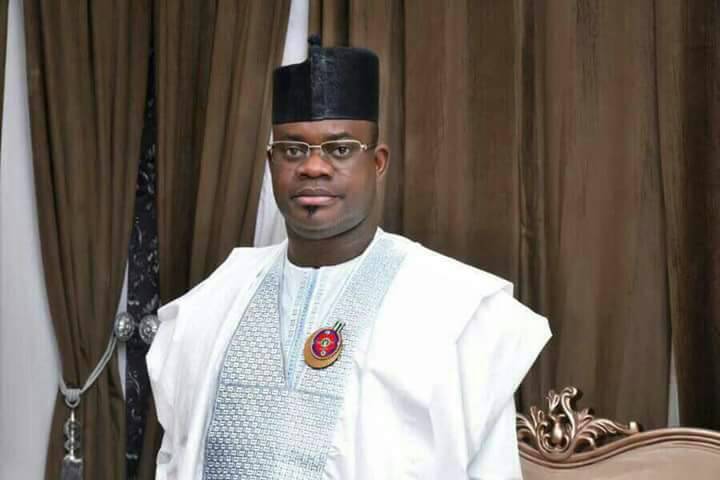
 News2 days ago
News2 days ago‘’I Am Afraid of Arrest’’ – Ex-Kogi Governor, Yahaya Bello Cries Out
-
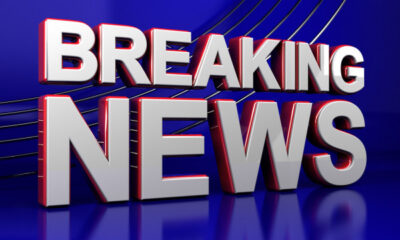
 News2 days ago
News2 days agoJUST IN: Government Shuts Down Lead British School Over Student’s Bully (VIDEO)
-
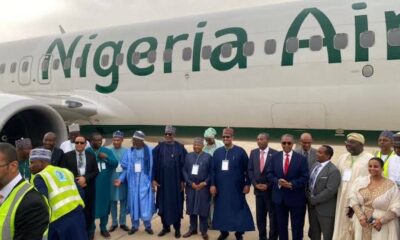
 News1 day ago
News1 day agoBREAKING! EFCC Arrests Former Aviation Minister, Hadi Sirika Over Nigerian Air Scandal
-

 CRIME1 day ago
CRIME1 day agoBREAKING! EFCC Chairman Threatens To Resign Over Yahaya Bello’s Case (VIDEO)
